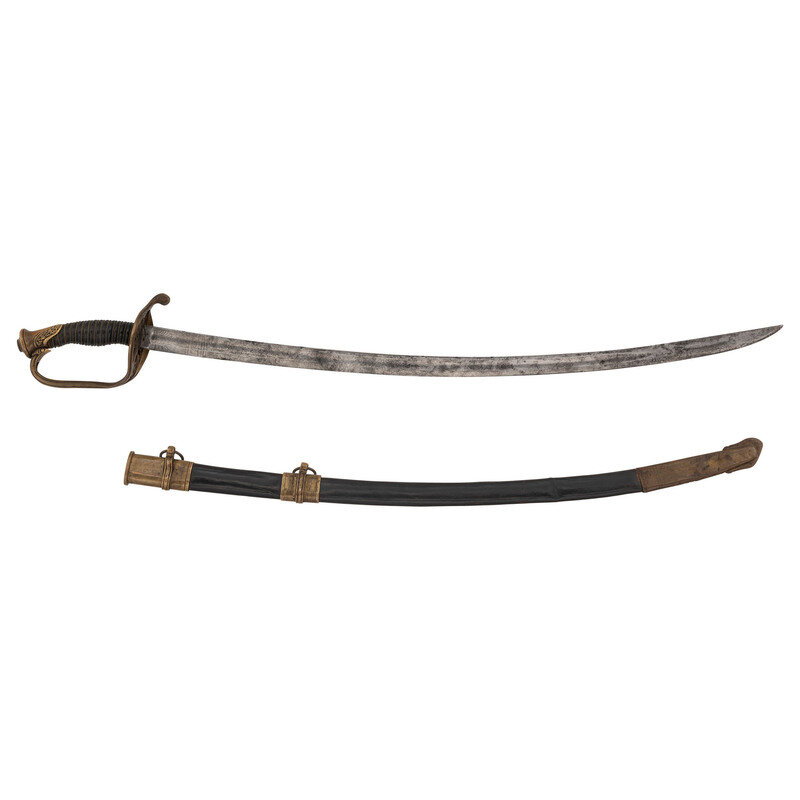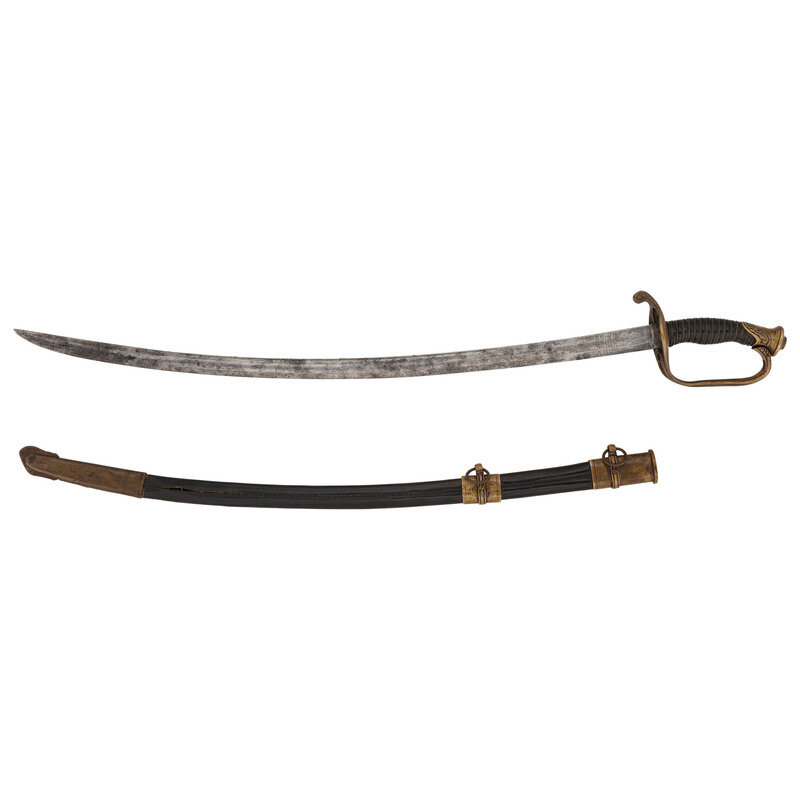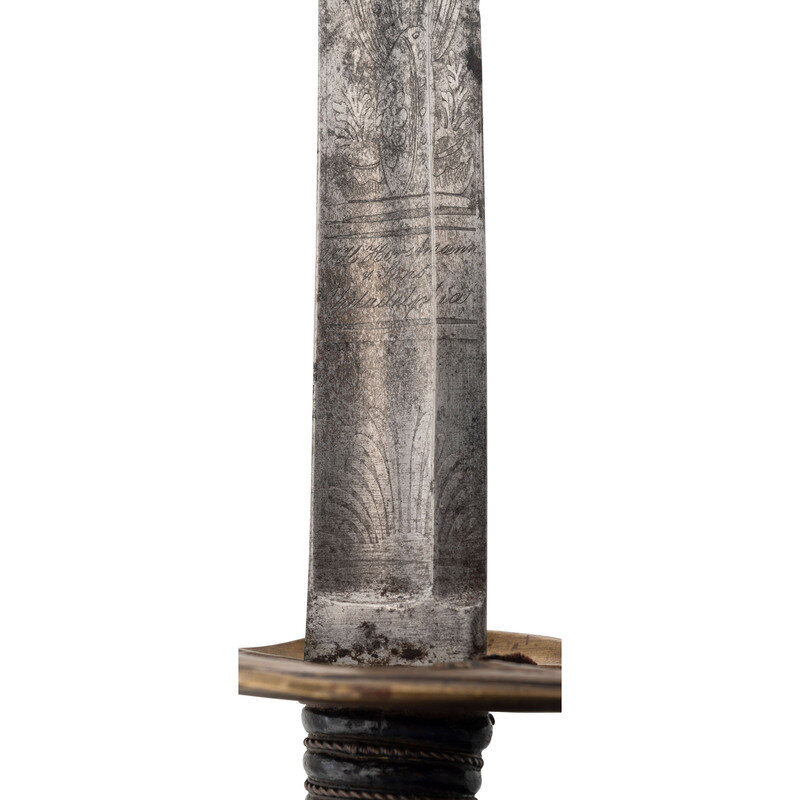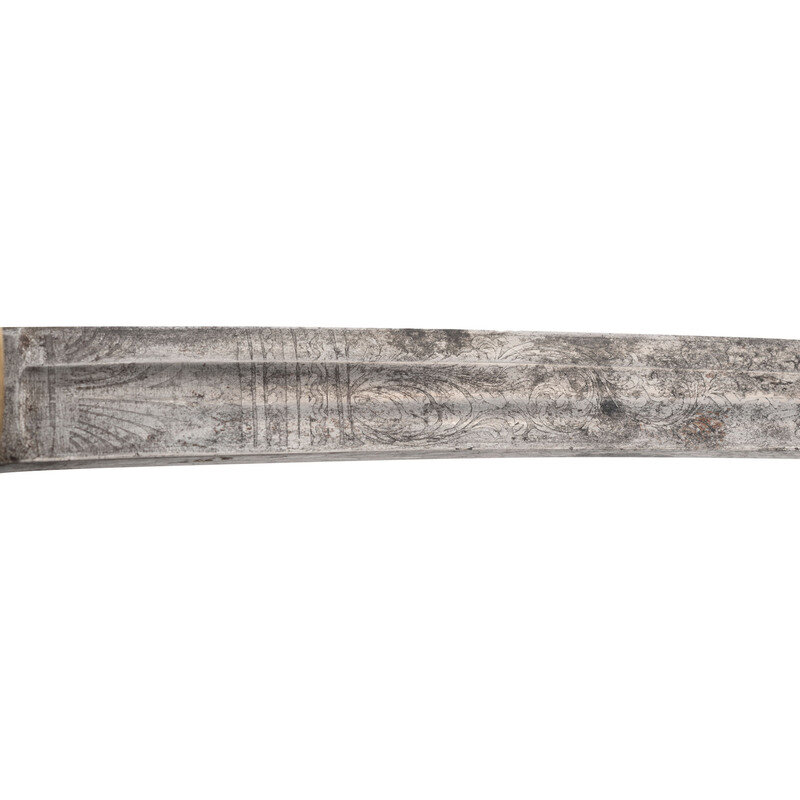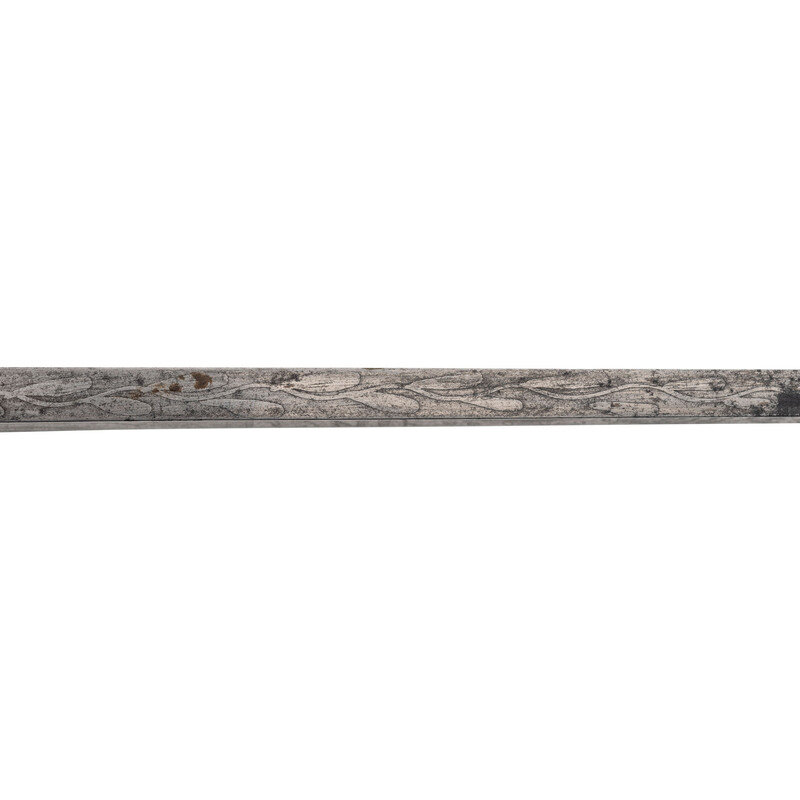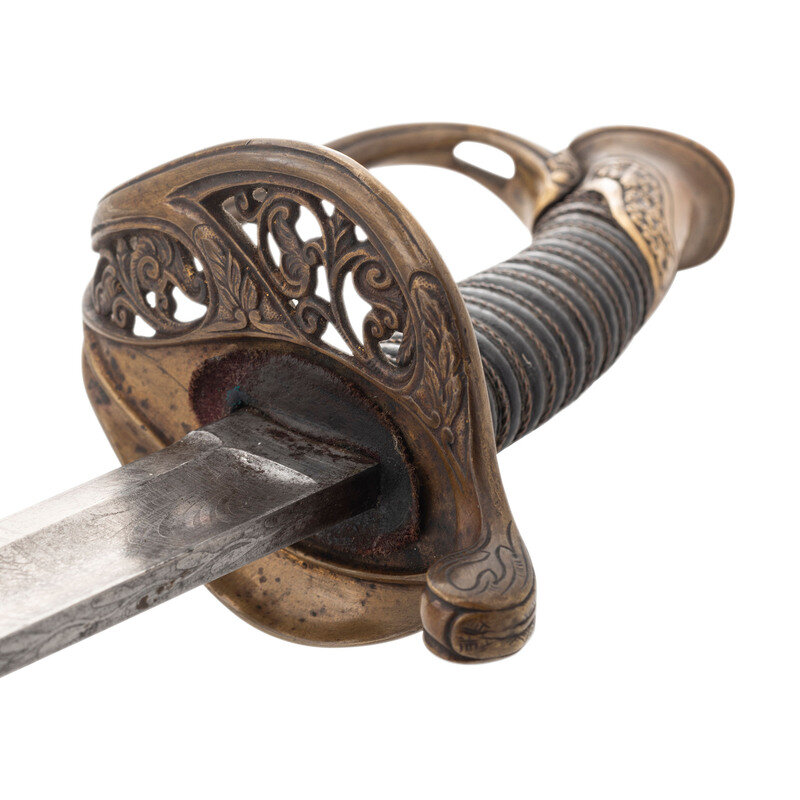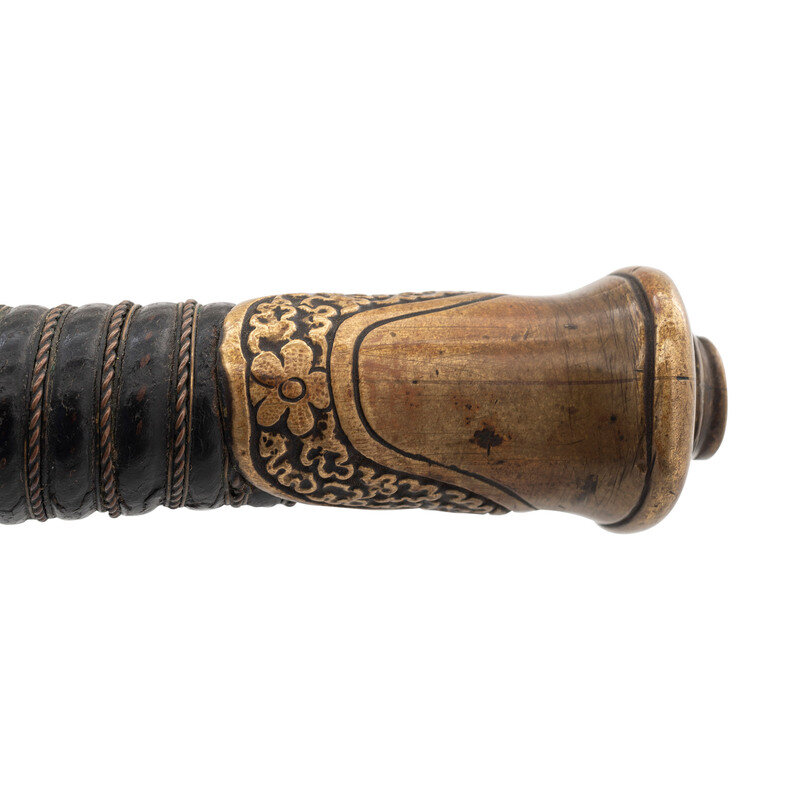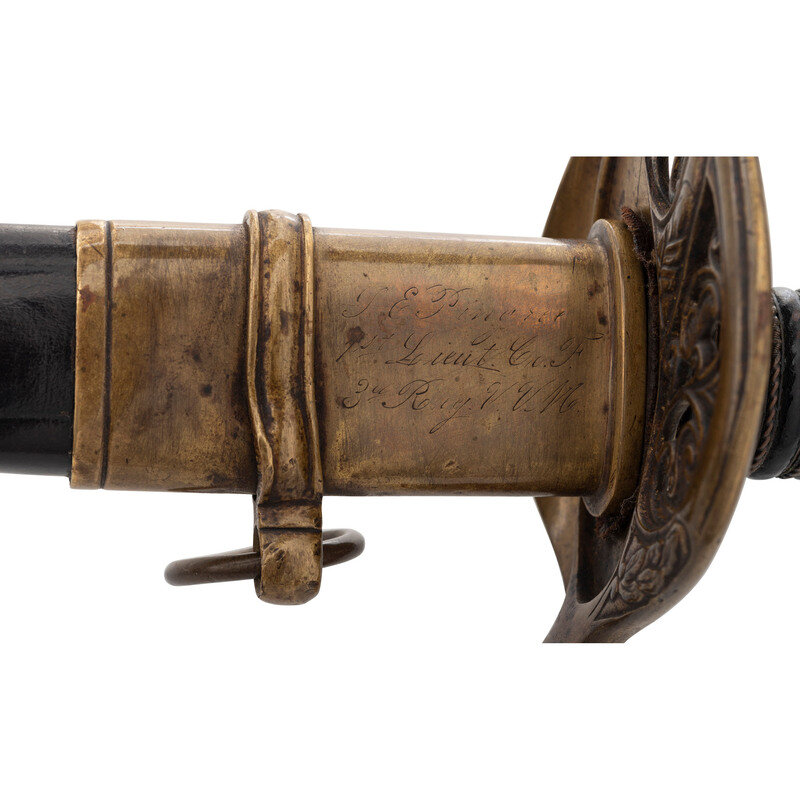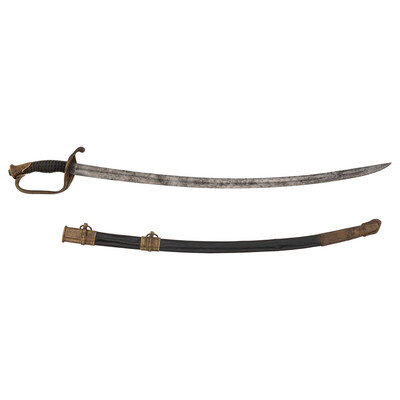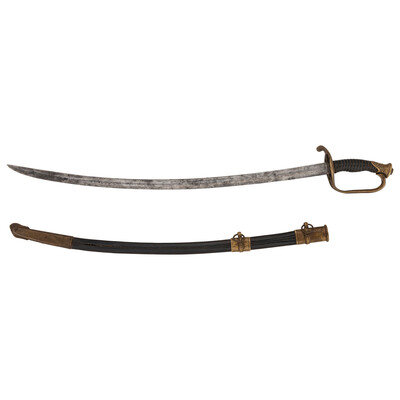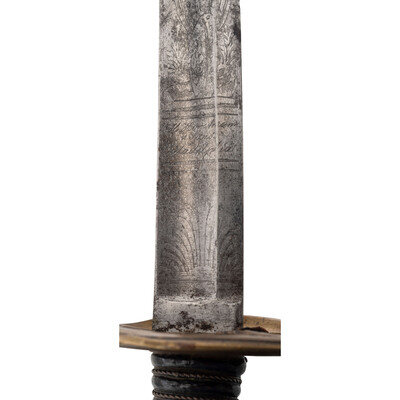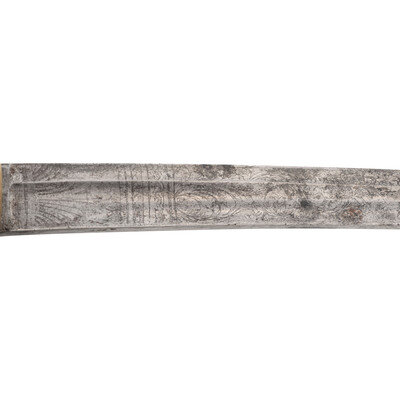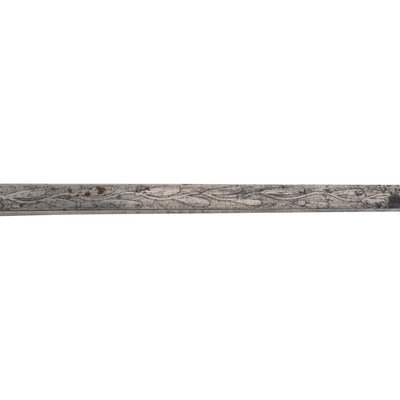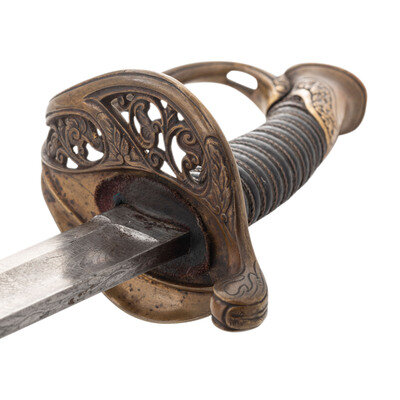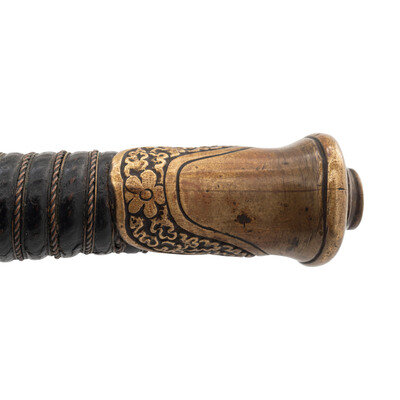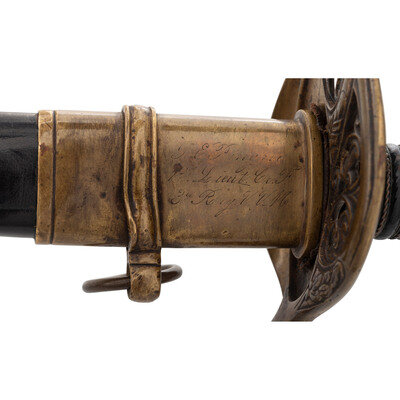Condition Report
Contact Information
Auction Specialists
Lot 27
Lot Description
29.25" curved single-edged blade with 23" stopped median fuller. Blade 1.125" wide at ricasso with a 15.75" long narrow fuller at the spine. 35.25" in overall length with a 6" hilt with a foliate decorated gilt brass guard and leather covered grooved wooden grip with 15 wraps of multi-strand wire. Obverse of blade is etched in three lines near the ricasso WH Horstmann/& Sons/Philadelphia. Blade with 13" etched panel featuring foliate scrolls, martial themes and panoplies of arms. Thick leather throat washer in place at face of guard. The sword is accompanied by its gilt brass mounted leather scabbard. The obverse upper mount of the scabbard is engraved S.E. Pingree/1st Lieut. Co. F/3 Regt. VVM. The sword is accompanied by two large binders of research and information about Pingree, copies of service records, correspondence, and many other pieces of reference material.
Samuel E. Pingree (1832-1922) was a 28 year old lawyer when he was commissioned a 1st lieutenant in Company F of the 3rd Vermont Volunteer Infantry on May 24, 1861. Like so many of the newly formed Eastern theater regiments in the spring and summer of 1861, the 3rd Vermont was initially sent to the defenses of Washington. On August 13, 1861 Pingee was promoted to captain of Company F. The 3rd VT operated in the Washington and Northern Virginia area until March of 1862 when then embarked on McClellan's Peninsula Campaign. There they saw their first really serious combat at Lee's Mill on April 16, 1862. During that fight Pingree was detailed with two companies of men to cross a wide creek and to take Confederate rifle pits and an artillery position. The assault was met with strong resistance and Pingree received a wound below the left hip that temporarily disabled him. However, once he recovered the feeling in that leg he resumed the charge, leading his men. He was then wounded again, with a bullet striking his right hand taking away his thumb. Essentially stopped in their tracks by the heavy fire from two Georgia and one North Carolina regiment, Pingree sought either reinforcements or permission to retreat. Eventually he was allowed to remove the surviving men from the field.
For his gallant actions that day Pingree was awarded the Congressional Medal of Honor. The citation reads: "Gallantly led his men across a wide, deep creek, drove the enemy from the rifle pits, which were within two yards of the father bank, and remained at the head of his men until a second time severely wounded." Pingree's company started the assault with 52 officers and men, 27 of which were killed or wounded. A total of 392 Union soldiers were engaged in the attack and 45% were killed or wounded. Pingree then removed from the field for recuperation and rejoined the regiment in a few weeks. Meanwhile the regiment fought the next day at Williamsburg and were active during the Seven Days before Richmond, fighting at Savage's Station, White Oak Swamp and Malvern Hill. The regiment fought at Antietam under the command or their regimental major, and following the battle on September 27 Major Seaver was promoted to lieutenant colonel and Pingree was promoted to major. Like most of the Army of the Potomac, the regiment saw their last acton of the year at Fredericksburg.
On January 15, 1863 the colonel who had been placed in command of the regiment resigned because of accusations of cowardice in the face of the enemy at Fredericksburg and Seaver was promoted to colonel and Pingree was promoted to lieutenant colonel. In May the regiment was not present for Chancellorsville and executed a forced march of 32 miles to reach the field at Gettysburg on the evening of July 2, but their position in the line was not attacked on July 3. That fall they participated in the Bristoe and Mine Run Campaigns. In 1864 the regiment participated in Grant's Overland Campaign and fought at the Wilderness, Spotsylvania and Cold Harbor before joining the Siege of Petersburg. At the Wilderness Pingree was given temporary command of the 2nd Vermont as all of their field grade officers had been killed or wounded. That fall the regiment fought in the Shenandoah Valley at Third Winchester, Fisher's Hill and Cedar Creek.
Lt. Colonel Pingree was mustered out on July 25, 1864 and returned to his life as a lawyer in Hartford, VT. In 1867 he received a Masters from Dartmouth and in 1868 became the state's attorney for Windsor County, VT. That year he also served as a delegate at large to the Republican Convention in Chicago, and in 1870 was president of the Vermont Officer's Reunion Society. He was elected Lieutenant Governor of Vermont in 1882 and Governor in 1884. After his term in office, Pingree was the chairman of the board of the Vermont Railway Commission from 1886 to 1894. Pingree died on June 1, 1922 at the age of 89.
From the Collection of George Oldenbourg
